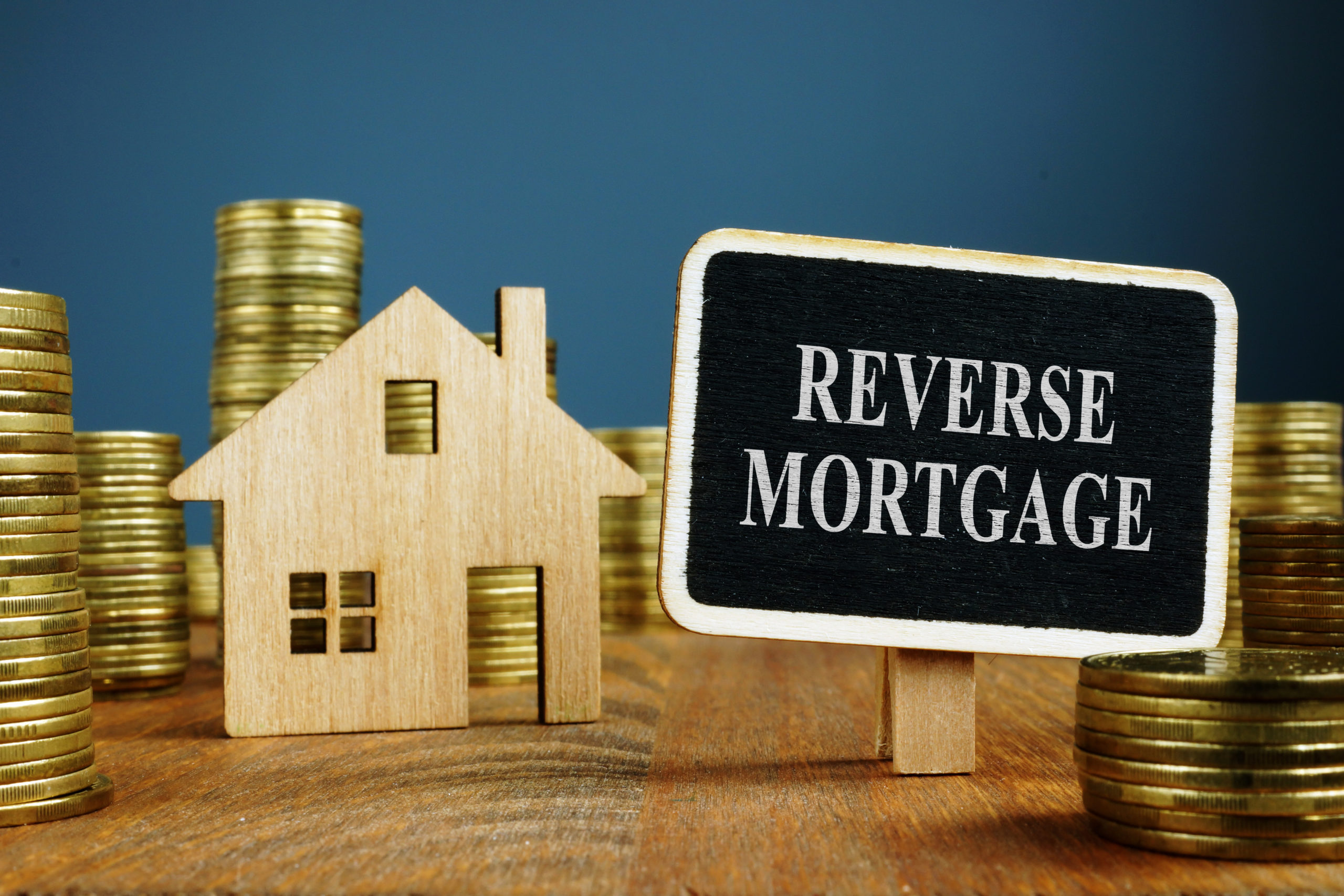Reverse Mortgages: Should You Use Your Home Equity To Get More Retirement Income?
Many Boomers today are facing an unpleasant future. Their golden years were supposed to be fun, relaxing, and carefree, but now reality has set in, and they find themselves financially unprepared. Many didn’t save enough during their working years because they planned to sell their homes and live off the home equity by moving to more affordable locales. The problem is that two-thirds of the average retiree’s net worth is in the form of home equity at a time when more are wanting to retire at home rather than selling and moving to Florida, Arizona, or other warm climates.
Many people don’t know that they can get a reverse mortgage, where you can borrow against the value of your home, and based on your age and home equity, you can receive funds as a:
- Lump sum
- Fixed monthly payment, or
- Line of credit
Unlike a forward mortgage, a reverse mortgage doesn’t require the homeowner to make any loan payments. Instead, the entire loan balance becomes due and payable when the borrower dies, moves away permanently, or sells the home. That way, their home equity can work for them and support their life while they are living in it.
Federal regulations require lenders to structure the transaction so that the loan amount doesn’t exceed the home’s value and that the borrower or borrower’s estate won’t be held responsible for paying the difference if the loan balance does become larger than the home’s value. One way that this could happen is through a drop in the home’s market value, another is if the borrower lives for a long time.
Increase Your Retirement Income
Many may be tempted to explore the reverse mortgage option as a way to increase their retirement income. Doing so means the elimination of a mortgage payment, assuming payments are still being made, and the ability to receive a portion of your home equity. Reverse mortgage recipients are then able to use the money for anything. Some may choose to blow it on a new car or motorhome, while others may wisely use it to supplement their income in retirement. Still, others may need it to pay for medical care or costly home repairs.
Benefits for Divorcing Couples
For divorcing couples, a reverse mortgage may allow one spouse to stay in the home while giving the other spouse funds to find a new home. A “for purchase” reverse mortgage option is also available for those interested in purchasing another retirement home. Essentially using the home equity to fund the purchase of a new home. Keep in mind that the loan will come due when the last surviving borrower either passes away, sells the home, or leaves the home for more than 12 months due to illness.
Options for taking the Reverse Mortgage Money
How much you will be able to borrow with a reverse mortgage will depend on your age (or the age of the younger spouse), the value of your home, and current mortgage rates. Assuming a five-percent interest rate, a 62-year-old borrower could potentially qualify for an initial payout of about 52% of the home’s value. This is capped by the Federal Housing Administration limit of $636,150.
The Good News
This money will come to you tax free because you are technically receiving loan advances rather than income. For retirees this is huge. It means the reverse mortgage won’t affect what you pay for Medicare or how much of your Social Security ends up being taxed. Yes, Social Security benefits can be taxed. For low-income retirees, it also shouldn’t affect your eligibility for Medicaid.
There are sometimes substantial up-front costs to obtain a reverse mortgage so you will likely want to plan on staying in your home for several years to help offset those costs. If you don’t spend the money you’ve pulled out you can prepay the loan balance without penalty whenever you like. This sounds easier to do than it probably will be in reality. Few people take reverse mortgages who don’t need the money. If they wanted to pay back the full amount taken, without selling the property, most wouldn’t have the substantial assets needed to do it.
There are a variety of reverse mortgage payout options. Which one is best for you will depend on your financial needs and goals. During the first two years, you can borrow the maximum amount for which you have qualified. A line of credit will offer the most flexibility. You can tap into this on an as needed basis or keep it in reserve in case money is needed for expenses.
For borrowers who need income now, you can choose fixed monthly payments. This can be in tandem with an additional line of credit. There are three ways you can take these fixed reverse mortgage payments.
3 Important Payments
1. Reverse Mortgage Term Payment
Provides a fixed monthly payment for a certain period of time. If you take the term payments, you will not receive any payments beyond the term. This could be a good option for older seniors who needed extra money for in home care.
2. Reverse Mortgage Tenure Payment
Provides a fixed monthly payment. Amounts will be based on your age assuming a life expectancy of 100. Payments will remain in force until the borrower dies, sells or leaves the home for another reason. Payments will continue even if your loan balance grows beyond the total value of your home.
3. Modified Tenure Payment and Modified Term Payments
These types of reverse mortgages combine either payment type mentioned above with a line of credit. You will have the benefit of a guaranteed base income combined with the benefit of access to a growing line of credit.
Consider a Lump Sum Reverse Mortgage
When used properly, this can be the best option for some retirees. On the other hand, when used badly this can turn into a disaster. Because this is a one and done deal, if you take the lump sum and spend it, you are essentially out of options. You will be out of money. At that point, the only option would be to sell your home if you need further funds to live.
Only choose this option if you are comfortable handling large chunks of money, using it for specific large expenses (that you can afford) like long-term-care insurance, a needed home renovation or paying the taxes on a Roth IRA conversion. Taking the lump sum without a spending plan will not likely end well.
3 Things to Consider Before Getting a Reverse Mortgage
1. Consult a Professional
Before pursuing a reverse mortgage, discuss it with your financial planner and tax professional. You’ll want to have a plan for how to use the money and how it will fit into your overall retirement plan. Make sure your financial planner is working as a fiduciary and not earning a commission for selling you the reverse mortgage. Put more plainly, you want to make sure you are getting unbiased advice.
A lender can help give you the basic information about what amounts you may qualify for with a reverse mortgage. Keep in mind that you may receive different terms, rates and amounts from different lenders.
2. Get at Least 3 Quotes
Ideally, you’ll want to get at least three quotes. Make sure each proposed reverse mortgage shows a selection of margins and also illustrates how your choices affect the up-front cost and net payouts. The Federal Housing Administration (FHA) allows lenders to charge an origination fee equal to the greater of $2,500 or 2% of your home’s value (on the first $200,000 of value), plus one percent of the amount over $200,000, with a cap of $4,000 for homes valued between $200,000 and $400,000. The cap increases to $6,000 for home worth more than $400,000. Lenders are allowed to charge less, of course.
3. Keep the Fees in Mind
You will also likely be responsible for a range of other fees for third-party services. These include services such as an appraisal, title search, insurance, and inspection which can easily run another $2,500 or more. Costs will vary by location and value of property and you’ll be able to pay up-front costs from the loan proceeds or pay them out of pocket.
Generally, lenders charge a fixed interest rate on lump-sum payouts whereas most other types of payouts come with a variable interest rate. Most often the higher the margin the lower the original fee. You may also be able to negotiate a credit against the closing costs in return for a higher margin.
Loan officers are sometimes paid by the amount that you initially borrow. This could lead them to recommend taking more money sooner or pushing the lump sum option even when a tenure payment may be more beneficial to you. This is when the fiduciary financial planner comes in to help you pick the best option for your specific needs.
Your Responsibilities with a Reverse Mortgage
The terms of the reverse mortgage will require you to maintain the home. You will still be responsible for paying property taxes, which for many is a major portion of their “mortgage payment.” Homeowner’s insurance, homeowner’s dues or condo dues will still be your responsibility as well. Not complying with these requirements will mean you run the risk of defaulting on your reverse mortgage. If lenders assume you won’t be able to handle these costs, they will set aside funds from your payout, in an escrow account, to pay those bills on your behalf.
Having the reverse mortgage in the name of one spouse can cause some additional challenges down the road. Once the borrow leaves the home, due to death or another reason, the lender must ask an eligible non-borrowing spouse or committed partner to stay in the home. This can leave survivors in a financial crunch as they will need to continue to maintain the home and pay required expenses. But, they will no longer be able to take money out of the reverse mortgage.
The good news is you can’t owe more than the value of your home when it is sold to repay the reverse mortgage. Once you have passed, if your home sells for more than you owe, your heirs will be allowed to keep any leftover home equity. If your heirs should want to purchase the home back from the reverse mortgage company when you pass, they can potentially refinance the reverse mortgage or repay the outstanding debt or 95% of the home’s appraised value, whichever is less.
What you Need to Know to Get a Reverse Mortgage
Requirements
There are eligibility requirements to obtain a reverse mortgage. Borrowers must be at least 62 years old, be named on the title of the home, and reside there at least half the year. Your qualified payout amount will depend on your age, as well as the current interest rates and the appraised value of your home. Currently, the maximum payout is $636,150 but some lenders will offer larger “jumbo” reverse mortgages. Generally, the younger you are, the lower the payout will be relative to your home’s value.
Counseling
You must also receive financial counseling to ensure that you can meet your obligations as a reverse mortgage borrower. To find a housing counselor certified by the Department of Housing and Urban Development (HUD) call 800-569-4289. Sessions will normally run $125 to $250 and can be done in person or over the phone.
If You Still Have a Mortgage…
If you still have a mortgage, you will need to pay it off from the reverse mortgage loan or other sources. You won’t be allowed to withdraw more than 60% of your principal limit in the first year. The only exception to this is if you needed more to pay off an existing mortgage debt or make repairs that are being required by the reverse mortgage lender. Reverse mortgages are insured by the FHA, and at closing, you will have to pay an initial FHA mortgage insurance premium equal to 0.5% of the appraised value of the home assuming you take less than 60% of the value in the first year. Keep in mind that insurance premiums jump to 2.5% if you take more than that 60% number.
Keep in Mind the Mortgage Premiums
While no principal or interest payments will be due while you are still alive and living in the home, you will be accruing annual mortgage premiums at a rate of 1.25% per year. This is based on the amount you borrow and interest charges will accrue on any outstanding balance. You may think these things do not matter but, if you talk to anyone who has tried to get out of their reverse mortgage, all the little details are extremely important.
Reverse mortgages are sometimes marketed as a solution to all of a senior’s money problems. They may also sound like a way to more fully enjoy retirement. However, they can be complicated and hard to understand. The fees and interest can eat up a substantial portion of the home equity. For many older adults, there are better solutions to financial struggles.
A real estate attorney that I know, who shall remain nameless, stated “99% of people who think they want a reverse mortgage shouldn’t get one. It’s a very rare occasion when these are right for the person.” With that in mind, think long and hard before signing on the dotted line. Explore your other potential options and make an informed decision.
By David Rae, Forbes


